Had the police arrived just a little later, eight highly endangered slow lorises would have been shipped off to live sad, lonely, and ultimately short lives in the illegal pet trade. Luckily, though, the cops appeared at just the right moment.
When they entered the home of a smuggler in Indonesia, they found the man had just finished packing eight slow lorises into mesh boxes, cramping them in four to a box.
Slow lorises are a species of nocturnal primate native to Southeast Asia. Their fuzziness and big eyes make them one of the most adorable creatures you can think of, though in their case, the cuteness has become a curse. People around the world selfishly want them as pets, making them targets for the illegal pet trade.
This rescue is one of many that has taken place over the past few years. Sadly, many more lorises are not saved, ending up in the pet trade where they're routinely mistreated.
Many of them even have their teeth removed to prevent them from biting, which is not only painful, it also makes eating difficult. Many slow lorises traded as pets die prematurely.
There is hope, though. Both conservation groups and police are becoming more and more vigilant as they work to rescue as many lorises as possible.
They're also working to rehabilitate them and, if they're healthy enough, to release them back into the wild where they belong.
[H/T: The Dodo]
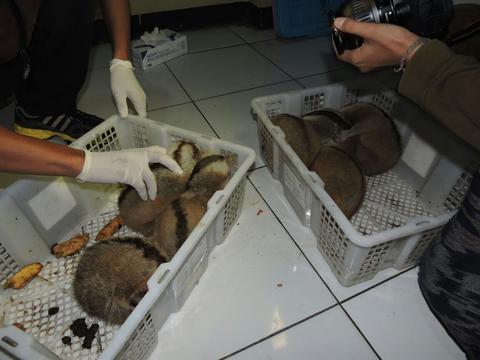
Police found eight slow lorises packed into these plastic bins in the house of a smuggler in Majalengka, West Java, Indonesia.
They were destined for the illegal pet trade, which exploits and abuses these endangered animals.
Luckily, the police arrived in time to arrest the man and free the lorises.
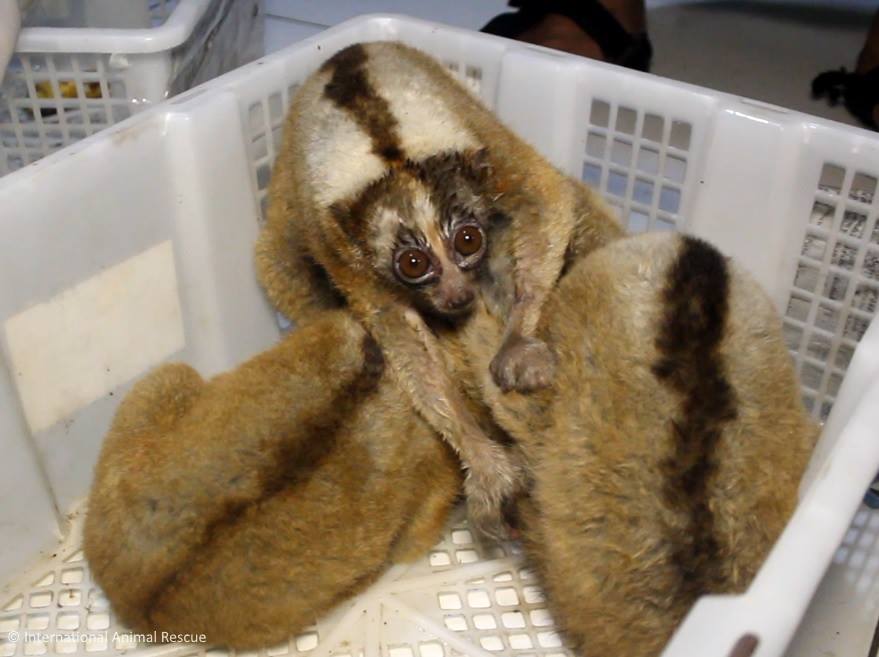
The eight lorises were all huddled in two boxes, their big eyes full of fear. There were also only a few scraps of food in the boxes and no water, so the animals were dehydrated.
Rescuers classified them as Javan slow lorises, one of 25 types of loris, and also one of the most endangered.
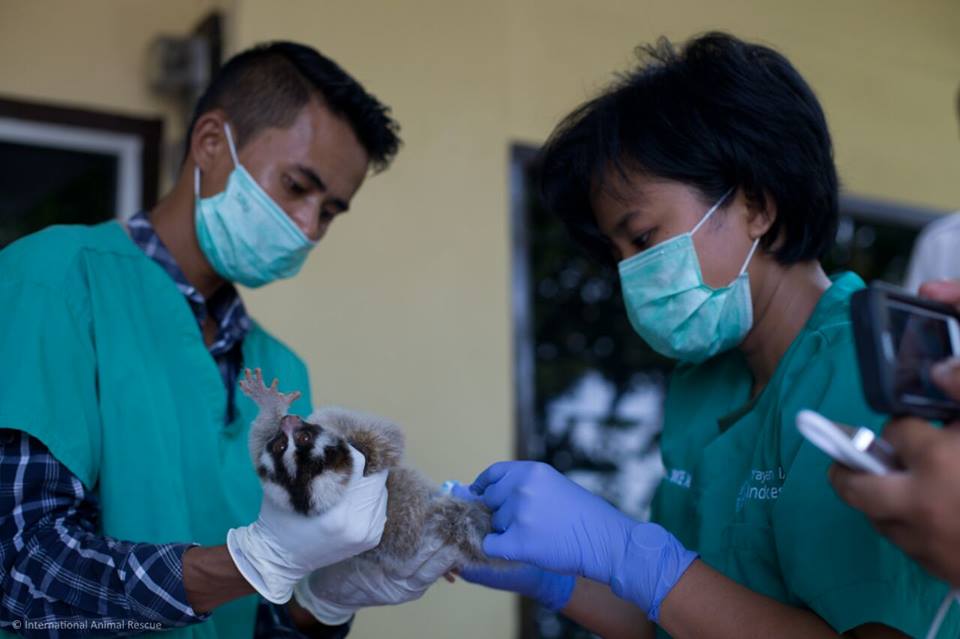
Slow lorises of any kind have been stolen from the forests and smuggled as pets ever since online videos sparked a craze about them several years ago.
Unfortunately, people didn't understand how sensitive and delicate these creatures were, and how they need to be respected as living things.
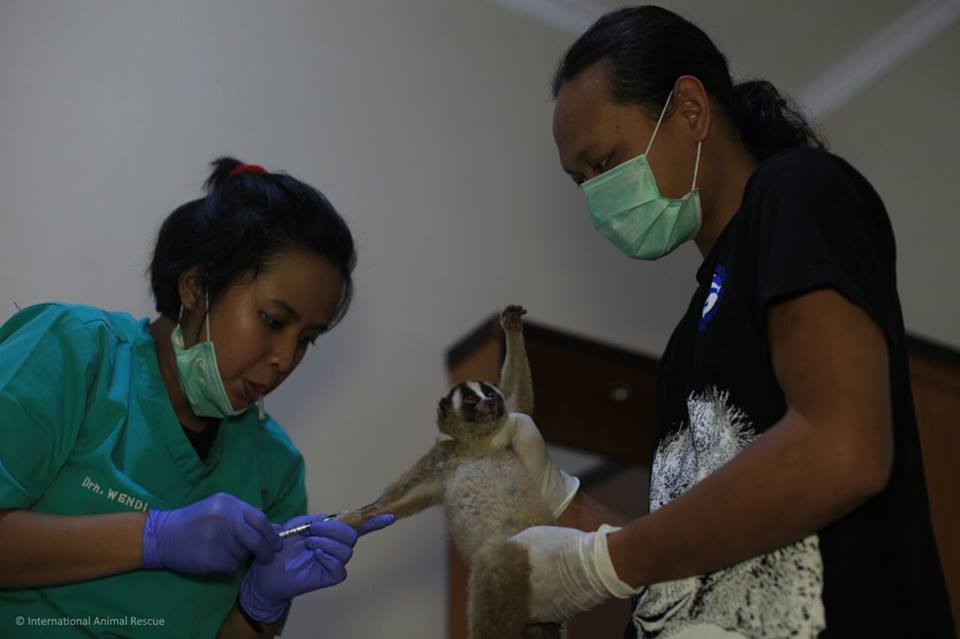
The eight rescued lorises were given to the kind people at the International Animal Rescue (IAR).
And to give you an idea of how many lorises get trafficked, the IAR rescued 19 slow lorises from the city of Cirebon in West Java just one day before this rescue.
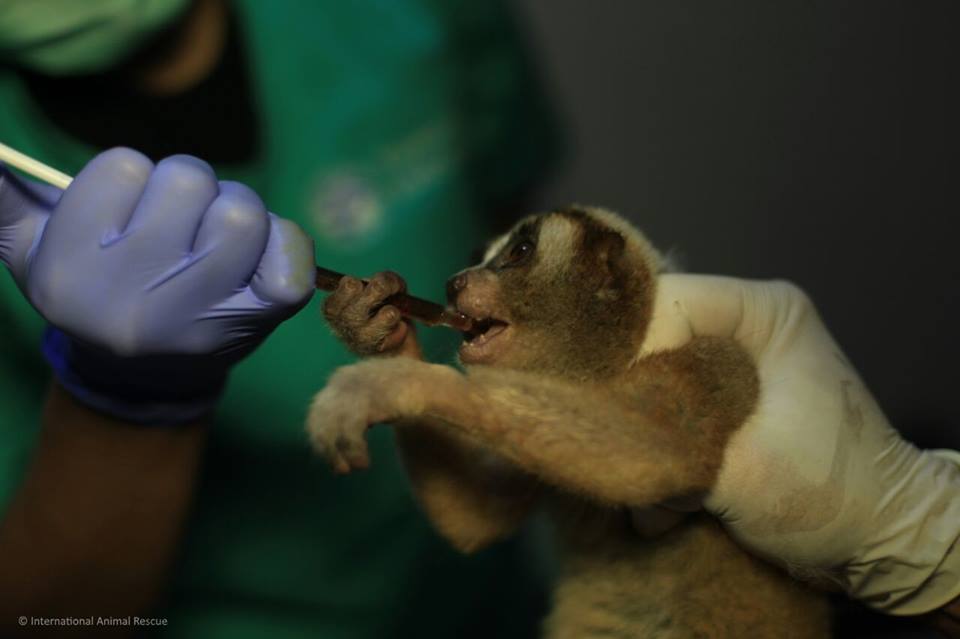
The eight lorises saved from Majalengka and the 18 survivors from Cirebon (sadly, one perished) were all brought to IAR's facility.
Christine Rattel, a program director at IAR, said that it's not uncommon for lorises to die in transit. "Up to 80 percent of lorises captured from the wild do not even make it to the markets or the buyers, which means that for one slow loris that someone might buy illegally and keep as a pet, four more will have died in the process," she added.
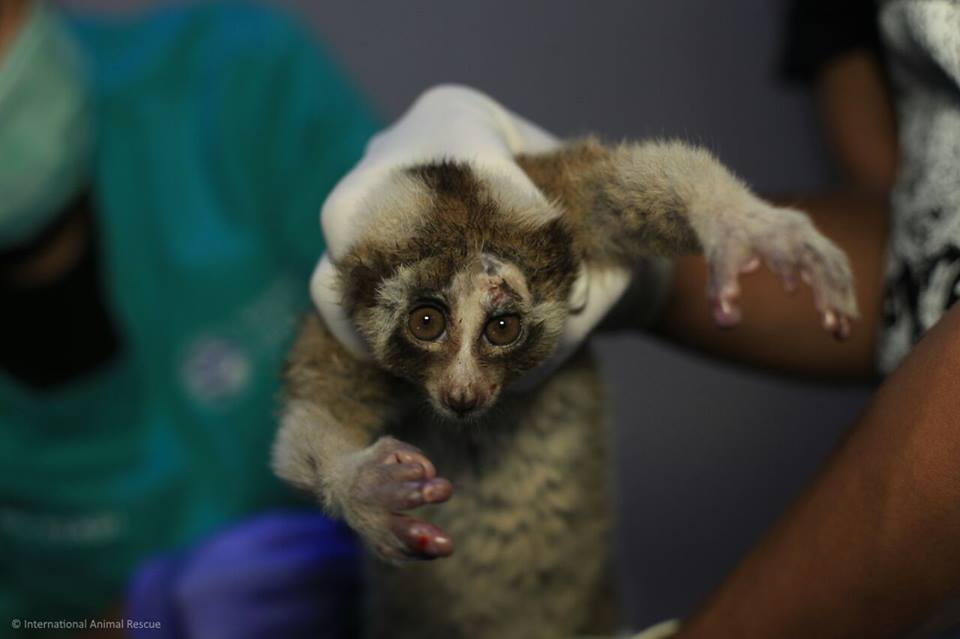
Despite some dehydration and a few eye infections, the rescued lorises seemed to be in good health.
Lorises are extremely sensitive, and the trauma of being snatched from the forests results in stress. Smugglers often cruelly stuff them into crowded cages, resulting in infections and wounds.
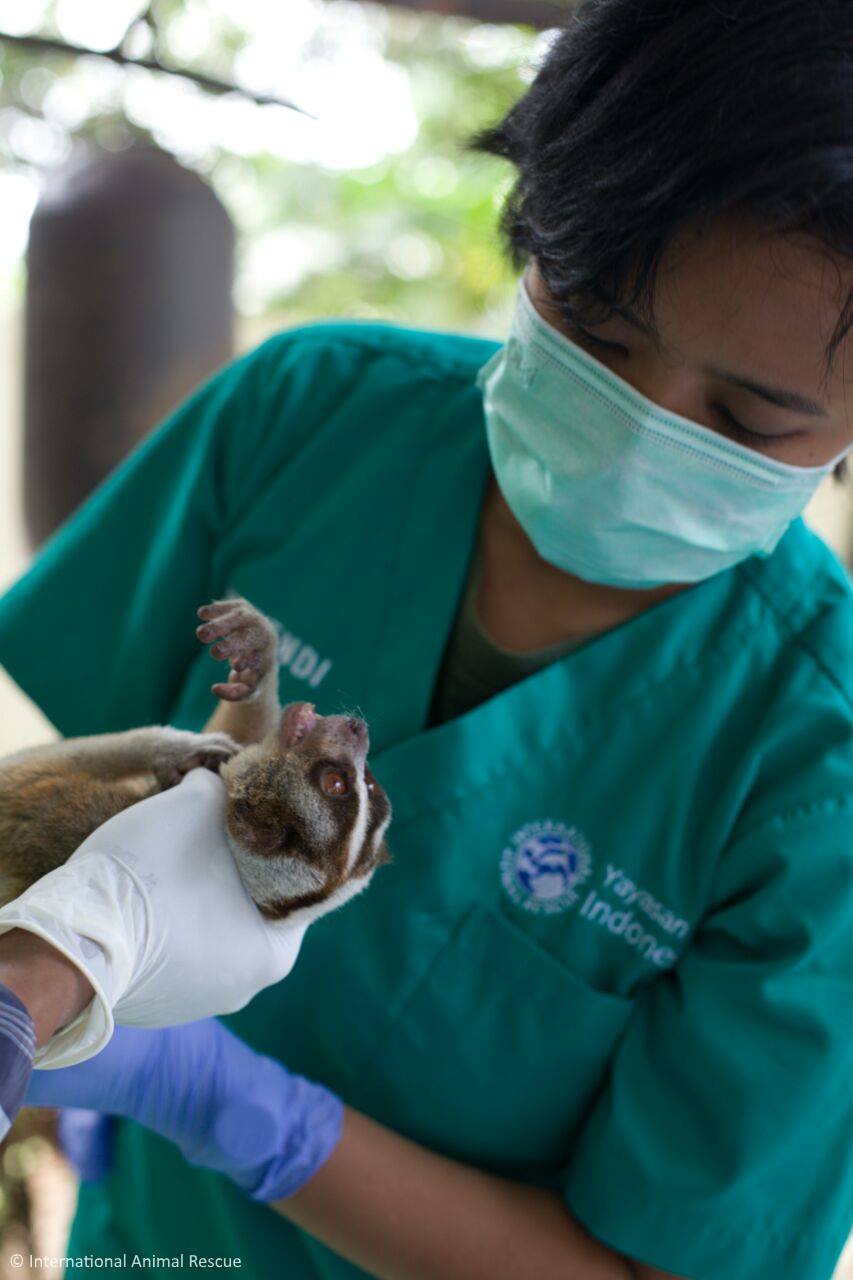
But these little guys seem like they're going to be OK. In fact, the folks at the IAR were happy to discover that their teeth hadn't been removed, which means they have a chance of being returned to the wild.
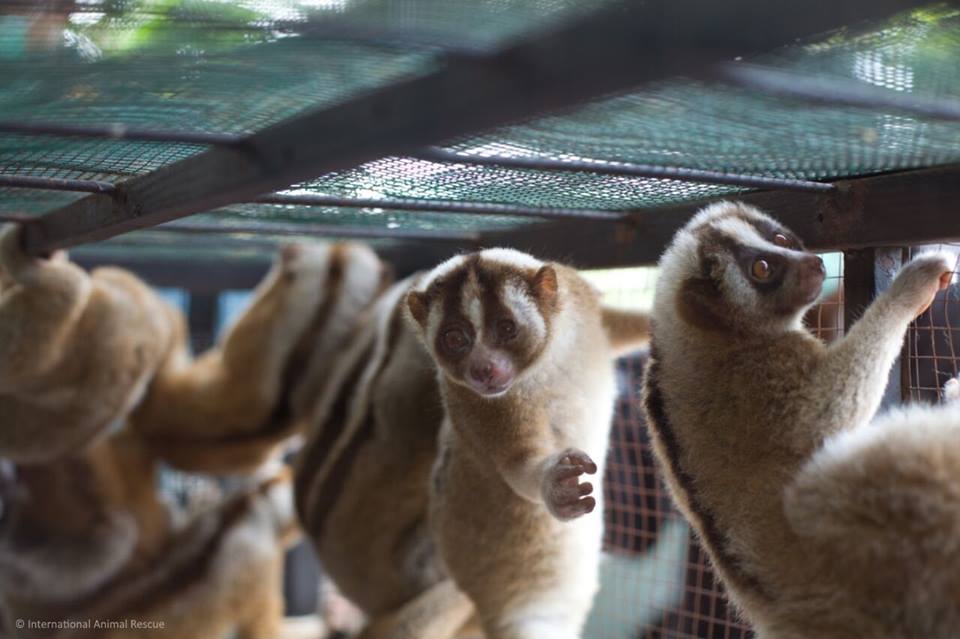
For now, they're rehabilitating at the IAR and being monitored to make sure they don't have any underlying health issues.
"We hope that these animals can be returned to the wild, where they belong, as soon as possible," said veterinarian Wendi Prameswari.
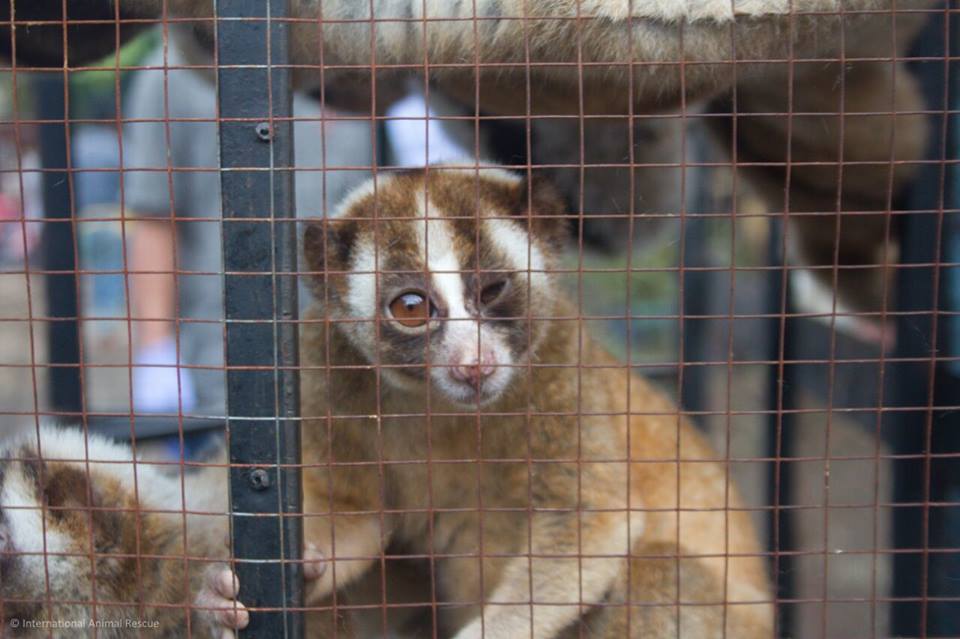
This rescue was a great step, but slow lorises are still in danger from the pet trade and its abuses. And the trade is hard to track, because much of it is done online.
"Tackling wildlife cybercrime has become a global issue endangering many species of wildlife," said IAR director Karmele Llano Sanchez. "We sincerely applaud the efforts of the Ministry of Forestry and Environment and the police for these very successful operations. Law enforcement efforts are essential to stop wildlife trade."
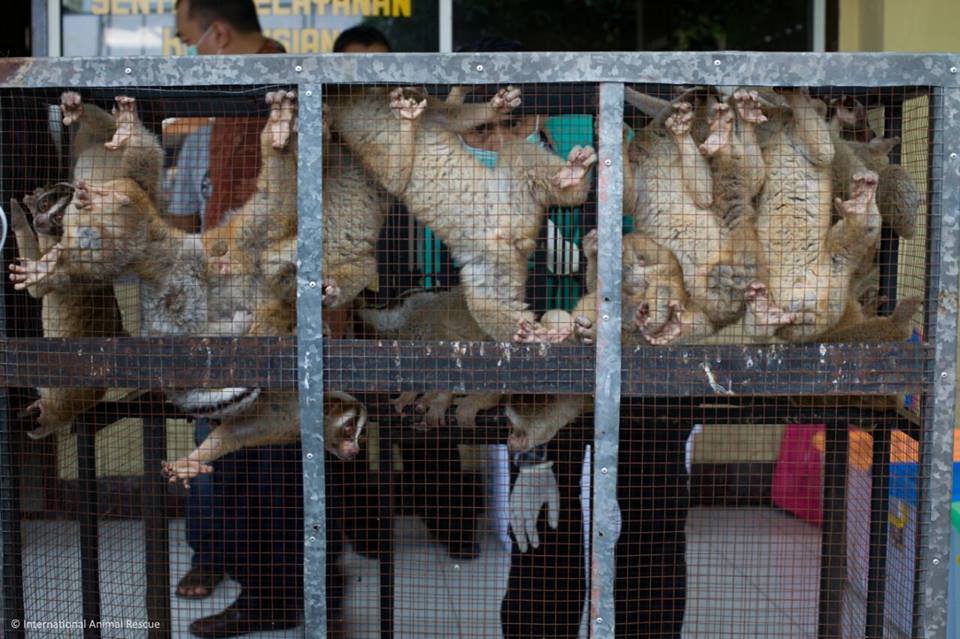
Want to help these sweet little creatures? You can! Start by letting everyone know that lorises are not pets, and that the pet trade hurts them and many other animals worldwide. You can also donate to the IAR to help them care for animals of many kinds, and sign a pledge to take a stand against animal cruelty.
And of course, spreading the word is a great way to raise awareness, too, so SHARE this story to help a loris!




